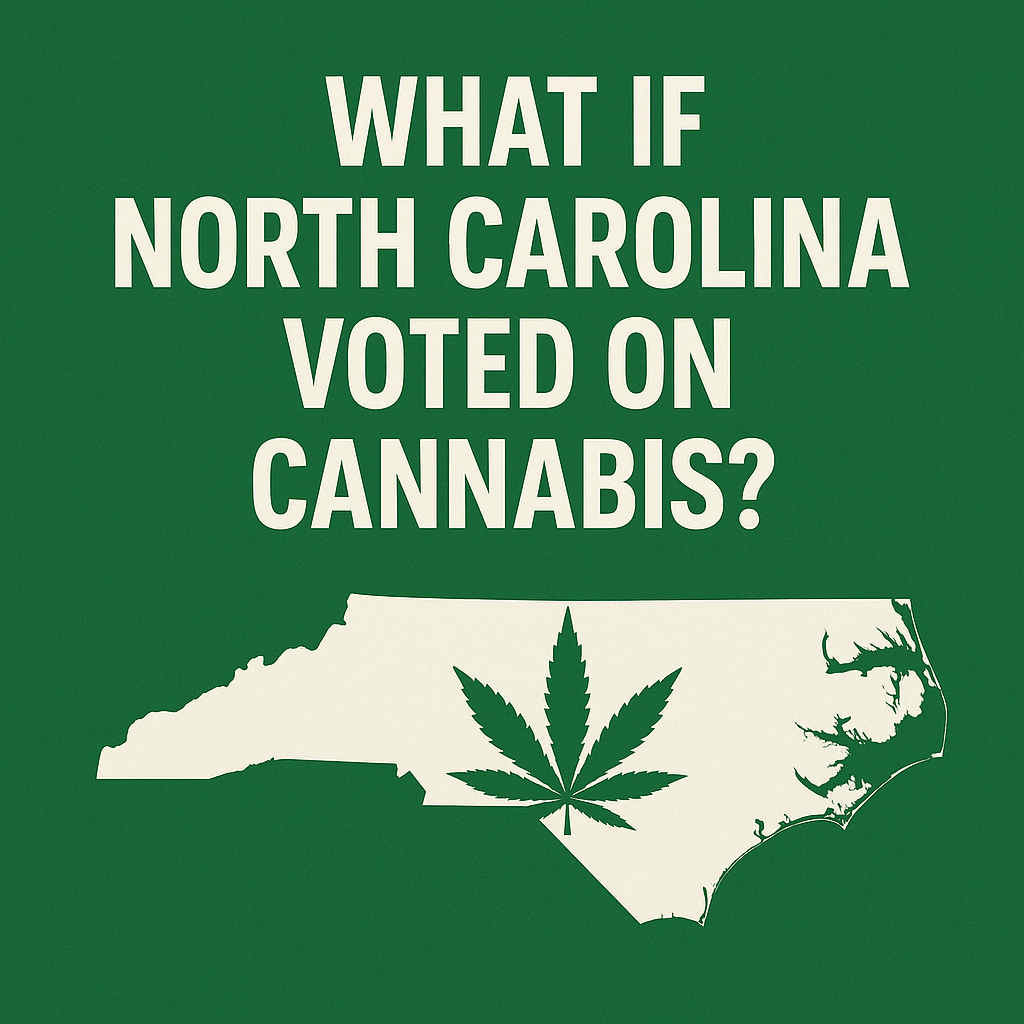
What If North Carolina Voted on Cannabis?
In North Carolina, statewide referendums are rare. Unlike many states, we don’t have a process where citizens gather signatures and place an issue on the ballot. Here, the General Assembly would have to vote to put any proposed amendment before the people—and historically, they’ve reserved that power for budget items and a few specific constitutional changes.
Other states have taken the opposite route. From Colorado to Missouri, voters have legalized cannabis through ballot initiatives, often with a focus on setting up a regulated market or creating a medical program. In those states, it’s been about policy.
But what if North Carolina took it a step further—and made it about rights?
Imagine the voters of North Carolina deciding, once and for all, whether adults should have the constitutional right to access cannabis. Not just medical cannabis. Not just hemp. All of it—regulated for safety, restricted to adults, taxed like any other product, and available through responsible businesses.
It might sound far-fetched, but it’s not hard to picture what the wording could look like:
“Do you support amending the North Carolina Constitution to recognize the right of adults aged 21 and over to possess, purchase, and use cannabis and cannabis-derived products, and to allow the cultivation, processing, and sale of cannabis in accordance with state safety and labeling standards?”
If that were on the ballot, every voter could have their say—not just lawmakers, lobbyists, or special interests.
And based on years of polling, it would very likely pass. Surveys in North Carolina have repeatedly shown strong, bipartisan support for legal cannabis—medical and recreational alike. People in both parties, and in every corner of the state, often say the same thing: “I wish they’d just legalize it all and be done with it.”
Why does this matter?
Because North Carolina has quietly become one of the most open, accessible cannabis states in the country—not by design, but by allowing hemp and cannabis-derived products to flourish with minimal interference. Over the past six and a half years, businesses like ours have proven that access can be both safe and beneficial. We see it every day: veterans, parents, teachers, seniors, and countless others finding a better night’s sleep, relief from pain, or simply a gentler way to relax after work.
And it’s not just stories. A July 2025 study in the peer-reviewed journal Pharmacy found that cannabis users with chronic pain had 27% fewer urgent care visits, 33% fewer ER visits, and reported feeling better overall. That’s measurable improvement—in health, in quality of life, and in reducing strain on the healthcare system.
But this isn’t only about health and business. For decades, marijuana laws have been used to take away rights—especially for marginalized communities—by putting people in jail for something that millions of Americans now use legally. The conversation shouldn’t just be about who gets to sell it. It should be about ensuring that no adult is criminalized for using it responsibly.
Right now, the North Carolina Advisory Council on Cannabis is taking a hard look at the issue. You can see their membership and materials here.
Their recent presentations have focused heavily on the worst examples—unsavory smoke shops, questionable marketing to children, and unsafe products sold without age checks. Everyone agrees that protecting minors should be a top priority. But there’s a whole other side to this story: responsible dispensaries, informed employees, and customers who benefit from safe, legal access every day.
The Advisory Council is accepting public comments right now. If you care about the future of cannabis in North Carolina, this is your opportunity to speak up.
A referendum wouldn’t just be about personal wellness. It would also be about protecting jobs, safeguarding small businesses, and ending a system that has punished far too many people for far too long.
Will the General Assembly put cannabis on the ballot anytime soon? Probably not. But if they did, it would be a chance for North Carolina to embrace what’s already working, protect it in the Constitution, and ensure that the people—not just politicians—decide the future of cannabis in our state.
It’s a “what if” worth thinking about.
